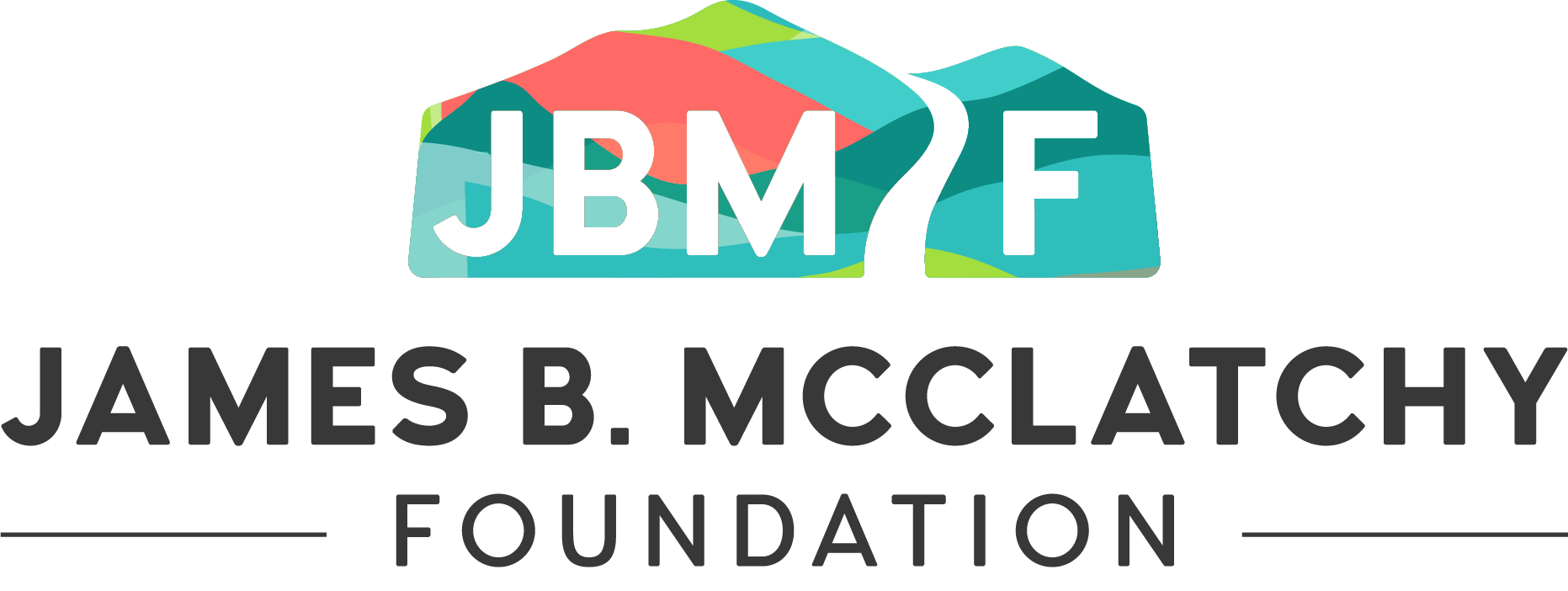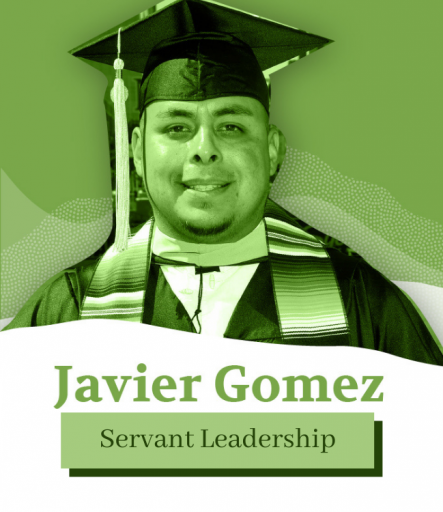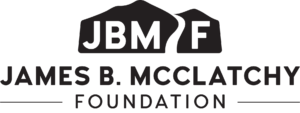Positive Behavior Interventions and Supports Coordinator
Cutler Orosi Joint Unified School District
I wanted to get into education because there are students who have unique needs and who require interventions and support. We're all different and come from different cultures and places, but at the end of the day, it's all about treating each other with respect and providing all students with an education that is equitable and inclusive. I wanted to provide students with the skills to be successful academically, socially, and overall provide the life skills that will lead them to be productive citizens.
Servant Leadership
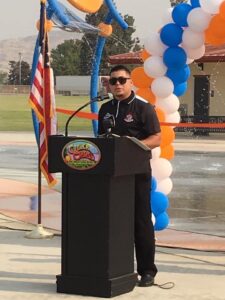 My story begins here in the Cutler-Orosi community. Cutler Orosi is a rural community located in the Central Valley in California. The majority of the families in Cutler Orosi primarily work in agriculture. Many of the residents are either first to second-generation immigrants or those that have recently immigrated from Mexico.
My story begins here in the Cutler-Orosi community. Cutler Orosi is a rural community located in the Central Valley in California. The majority of the families in Cutler Orosi primarily work in agriculture. Many of the residents are either first to second-generation immigrants or those that have recently immigrated from Mexico.
My parents migrated many years ago to the valley from a small town called Ameca, Jalisco, Mexico. They came seeking better opportunities and found work here in the Central Valley. They worked in farm labor picking nectarines, peaches, olives, and grapes. At the age of 5, I remember having to go with my parents to the fields to pick grapes and to earn enough money to cover the expenses of food, bills, and rent. On occasions, we made enough money to treat ourselves to ice cream. We were a family of five living in a small two-bedroom home. For my family, it was challenging to balance the priorities of putting food on the table and making sure my siblings and I attended school. I remember my mother would wake up early before going to work in the mornings to make handmade tortillas and frijoles for lunch. We would then leave to work early to beat the heat.
We didn’t have much but we had each other. My father would always remind us that money doesn’t buy you happiness. He raised us to appreciate our family and seek a better education so that we wouldn’t have to work in the fields under the extreme heat of the Central Valley.
I grew up appreciating my community, culture, religion, and the values my parents instilled in me. I learned what hard work was like and realized that education was the key to my success. I was the second child in my family to graduate from high school and the first to attend college.
Although my family and I faced many obstacles and challenges while growing up, to me, spending time with my family were the most meaningful and most memorable moments of my life.
Supporting the Academic, Social-Emotional, and Behavior Needs of all Students
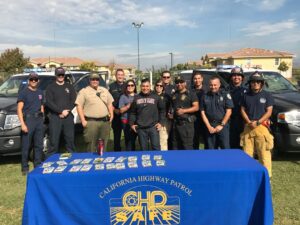


PBIS is a framework for integrating socio-emotional learning practices that supports the mental health, behavioral, and academic needs of all students. The framework enhances the capacity of schools to educate all children by integrating research-based, school-wide classroom behavior, and academic support systems. The framework focuses on improving a school’s ability to teach and support a safe, equitable, and positive learning environment for all students.
Education is my second career. My first career was in law enforcement. In 2007, I was employed by the Tulare County Probation Department and I worked there for 10 years. During the course of my employment as a Deputy Probation Officer, I had the opportunity to work with youth in several assignments throughout Tulare County. My assignments included working full time as a certified instructor for the Gang Resistance Education and Training Program (G.R.E.A.T). The G.R.E.A.T. program is an evidence-based program intended to reach youth in an attempt to reduce delinquency, youth violence and gang membership.
For five years, I taught the G.R.E.A.T. curriculum to over 4,000 4th– 6th grade students in the Cutler-Orosi Unified school district. My services and duties were to provide students with life skills that included: active listening techniques, decision-making skills, communicating effectively, empathy, refusal skills, managing anger, and conflict resolution.
After several years working in schools and in youth prevention, I was promoted to Adult Supervision in which I worked in several capacities including the DUI and Domestic Violence unit. Eventually, I was promoted to Mental Health Court Officer. Throughout those years working with adults, I came to the conclusion that if there had been someone there for these individuals at an early age to mentor them, they would have changed their course or direction in life. It was intriguing to hear the stories of young juveniles who had been in gangs and were serving life sentences in juvenile hall. Somehow they got caught up in situations and got involved with the wrong crowd. At that point, there were no opportunities for them. It was at this moment in my life that I realized the impact I had while working in prevention with youth. Working with at-risk juveniles and adults generated in me a desire to help serve these individuals in a different setting than Law Enforcement with the hopes of guiding and providing them with the tools for educational success and a more rewarding lifestyle.
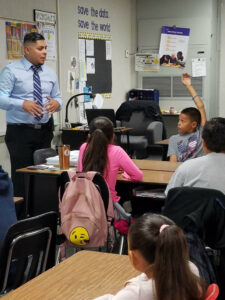


Another reason that motivated me to shift careers into counseling was when my son was born. He was born with nystagmus, which is a condition of involuntary eye movement. My wife and I were told that 1 in 3,000 kids are born with nystagmus. The news was heartbreaking for my wife and I. Although it was difficult, I began to advocate and learn more about the condition. I wanted to be a voice for him and felt the need to advocate for all students in school, especially students with special needs. I wanted to get into education because there are students who have unique needs and who require interventions and support. We’re all different and come from different cultures and places, but at the end of the day, it’s all about treating each other with respect and providing all students with an education that is equitable and inclusive. I wanted to provide students with the skills to be successful academically, socially, and overall provide the life skills that will lead them to be productive citizens.
With my law enforcement experience and understanding students’ needs, I ended up coming into a counseling career in education, and I love it. I love working with students, staff, parents, and the community.
New Heights
In 2014, I was chosen as the Tulare County employee of the year, which was an honor. Over 100 other County employees were also nominated. This was a huge accomplishment for me. I aspired to do good work and make a difference, so to be recognized in this way was something I didn’t imagine or expect. My recognition was a result of my commitment to providing awareness on gangs, drugs, and bullying prevention in the community.
Most recently, Community for Children, creators of the Second Step Social and Emotional Learning (SEL) curriculum, published a success story on our school district’s implementation of Second Step lessons. Previously, the school district focused on teaching social-emotional learning skills to students from a behavioral approach administered to small groups of students at a time. I worked with district leaders to transition to preventative socio-emotional interventions that were implemented throughout the district.
As the PBIS coordinator, I supported the integration of the SEL curriculum in our district, resulting in all students receiving the skills and knowledge for problem-solving, emotion management, conflict resolution, and self-regulation skills. The vote of confidence by the school district leaders and the willingness to shift practice really meant a lot to me. Most importantly, it will positively impact more students.
When I reflect on these accomplishments, I see that the more I allow myself to be a vessel of change and impact on the kids in our community, the more success seems to come.
Encouraging Parents and Families
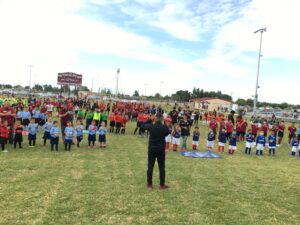


Striving for Excellence, Hope for a Bright Future
Approximately 96% of students in our district are classified as socio-economically disadvantaged due to high poverty rates in the community. That is already a challenge for many students and families when they enroll in preschool. Building and receiving the academic and life skills they need to be successful in life is key for their success in elementary and beyond. The challenges and obstacles that many of the students face don’t dictate their future. My hope for current and future preschoolers and learners is for them to strive for excellence in their future and in their education.
Published on the James B. McClatchy Foundation website using the Creative Commons License https://creativecommons.org/licenses/by-nc-nd/4.0/ : Attribution-NonCommercial-NoDerivatives 4.0 International (CC BY-NC-ND 4.0)
Javier Gómez
Coordinador de Intervenciones y Apoyos Conductuales Positivos
Distrito Escolar Unificado Conjunto de Cutler-Orosi
Liderazgo de servicio



Mis papás inmigraron al valle hace muchos años desde un pequeño pueblo llamado Ameca, Jalisco, México. Llegaron buscando mejores oportunidades y encontraron trabajo aquí en el Valle Central. Trabajaron en labores agrícolas piscando nectarinas, duraznos, aceitunas y uvas. A la edad de 5 años, recuerdo que tenía que ir con mis papás al campo a piscar uvas y ganar suficiente dinero para cubrir los gastos de comida, facturas y renta. En ocasiones, ganábamos suficiente dinero para regalarnos un helado. Éramos una familia de cinco que vivíamos en una pequeña casa de dos recámaras. Para mi familia, era un reto equilibrar las prioridades de poner comida en la mesa y asegurarse de que mis hermanos y yo fuéramos a la escuela. Recuerdo que mi mamá se levantaba temprano antes de ir a trabajar por las mañanas para hacer tortillas a mano con frijoles para el almuerzo. Luego nos íbamos al trabajo temprano para ganarle al calor.
No teníamos mucho pero nos teníamos a nosotros mismos. Mi papá siempre nos recordaba que el dinero no compra la felicidad. Nos enseño a apreciar a nuestra familia y buscar una mejor educación para no tener que trabajar en los campos bajo el calor extremo del Valle Central.
Crecí apreciando mi comunidad, mi cultura, mi religión y los valores que mis papás me inculcaron. Aprendí lo que era el trabajo duro y me di cuenta de que la educación sería la clave de mi éxito. Fui el segundo hijo de mi familia en graduarme de high school y el primero en asistir a la universidad.
Aunque mi familia y yo nos enfrentamos a muchos obstáculos y desafíos mientras crecíamos, para mí, el tiempo que pasé con mi familia comprendió los momentos más significativos y memorables de mi vida.
Apoyando las necesidades académicas, socio-emocionales y de comportamiento de todos los estudiantes



PBIS es un marco para integrar las prácticas de aprendizaje socio-emocional que apoya la salud mental, la conducta y las necesidades académicas de todos los estudiantes. El marco mejora la capacidad de las escuelas para educar a todos los niños mediante la integración de sistemas de apoyo académico y de conducta en el aula basados en la investigación. El marco se centra en mejorar la capacidad de una escuela para enseñar y apoyar un ambiente de aprendizaje seguro, equitativo y positivo para todos los estudiantes.
La educación es mi segunda carrera. Mi primera carrera fue en el área de aplicación de la ley. En 2007, fui empleado por el Departamento de Libertad Condicional del Condado de Tulare y trabajé allí durante 10 años. Durante el transcurso de mi empleo como Oficial Adjunto de Libertad Condicional, tuve la oportunidad de trabajar con los jóvenes en varias asignaciones en todo el Condado de Tulare. Mis asignaciones incluyeron trabajar tiempo completo como instructor certificado para el Programa de Educación y Entrenamiento de Resistencia a las Pandillas (G.R.E.A.T). El programa G.R.E.A.T. es un programa basado en evidencia que pretende acercarse a los jóvenes en un intento de reducir la delincuencia, la violencia juvenil y el pandillerismo.
Durante cinco años, enseñé el programa G.R.E.A.T. a más de 4,000 estudiantes de 4º a 6º grado en el distrito escolar unificado de Cutler-Orosi. Mis servicios y responsabilidades eran brindar a los estudiantes habilidades para la vida que incluían: Técnicas de escucha activa, habilidades de toma de decisiones, comunicación efectiva, empatía, habilidades de rechazo, manejo de la ira y resolución de conflictos.
Después de varios años de trabajo en las escuelas y en la prevención entre jóvenes, fui promovido a la Supervisión de Adultos en la que trabajé en diferentes áreas, incluyendo la unidad antialcohólica y la de violencia familiar. Con el tiempo fui promovido a Oficial de la Corte de Salud Mental. A lo largo de esos años trabajando con adultos, llegué a la conclusión de que si hubiera habido alguien allí para estas personas a una edad temprana para guiarlas, habrían cambiado de rumbo o seguido un camino diferente en la vida. Resultaba intrigante escuchar las historias de jóvenes que habían formado parte de pandillas y cumplían cadena perpetua en la prisión de menores. De alguna manera se vieron envueltos en situaciones y se involucraron con la gente equivocada. En ese momento, ya no había oportunidades para ellos. Fue en ese momento de mi vida que me di cuenta del impacto que tenía el trabajo de prevención con los jóvenes. Trabajar con jóvenes y adultos en riesgo generó en mí el deseo de ayudar a servir a estas personas en un entorno diferente al de las agencias de la ley, con la esperanza de guiarlas y brindarles las herramientas para el éxito educativo y un estilo de vida más gratificante.



Otra razón que me motivó a cambiar de carrera hacia la consejería fue cuando nació mi hijo. Nació con nistagmo, que es una afección de movimiento ocular involuntario. Nos dijeron a mi esposa y a mí que uno de cada 3,000 niños nace con nistagmo. Mi esposa y yo nos quedamos con el corazón roto. Aunque fue difícil, empecé a abogar y a aprender más sobre esta enfermedad. Quería ser una voz para él y sentía la necesidad de defender a todos los estudiantes en la escuela, especialmente a los que tienen necesidades especiales. Quería dedicarme a la educación porque hay estudiantes que tienen necesidades únicas y que requieren intervenciones y apoyo. Todos somos diferentes y venimos de culturas y lugares distintos, pero al final hay que tratarnos con respeto y ofrecer a todos los estudiantes una educación equitativa e integradora. Quería proporcionar a los estudiantes las habilidades para tener éxito académicamente, socialmente y, en general, enseñarles las habilidades para la vida que les llevarán a ser ciudadanos productivos.
Gracias a mi experiencia en la aplicación de la ley y a la comprensión de las necesidades de los estudiantes, acabé por dedicarme a la consejería en la educación, y me encanta. Me encanta trabajar con los estudiantes, el personal, los padres y la comunidad.
Nuevas alturas
En 2014, fui elegido como empleado del año del Condado de Tulare, lo cual fue un honor. Más de 100 otros empleados del Condado también fueron nominados. Esto fue un gran logro para mí. Aspiraba a hacer un buen trabajo y a marcar la diferencia, así que ser reconocido de esta manera fue algo que no imaginaba ni esperaba. Mi reconocimiento fue el resultado de mi compromiso con el crear conciencia sobre las pandillas, las drogas y la prevención del bullying en la comunidad.
Recientemente, Community for Children, creadores del plan de estudios Second Step Social and Emotional Learning (SEL), publicaron una historia de éxito sobre la aplicación de las lecciones Second Step en nuestro distrito escolar. Anteriormente, el distrito escolar se centraba en la enseñanza de habilidades de aprendizaje socio-emocional de los estudiantes desde un punto de vista conductual administrado a pequeños grupos de estudiantes a la vez. Trabajé con los líderes del distrito para hacer la transición a intervenciones socio-emocionales preventivas que se implementaron en todo el distrito.
Como coordinador de PBIS, apoyé la integración del plan de estudios SEL en nuestro distrito, con el fin de que todos los estudiantes recibieran las habilidades y el conocimiento para la resolución de problemas, el manejo de las emociones, la resolución de conflictos y las habilidades de autorregulación. El voto de confianza de los líderes del distrito escolar y así como la voluntad para cambiar las prácticas realmente significaron mucho para mí. Lo más importante es que tendrá un impacto positivo en más estudiantes.
Cuando reflexiono sobre estos logros, veo que entre más me permito ser un instrumento del cambio y el impacto en los niños en nuestra comunidad, parece que llegan más éxitos.
Animar a los padres y a las familias



Esfuerzo por la excelencia, esperanza de un futuro brillante
Aproximadamente el 96% de los estudiantes de nuestro distrito están clasificados como socioeconómicamente desfavorecidos debido a los altos índices de pobreza en la comunidad. Esto ya es un reto para muchos estudiantes y familias cuando se inscriben en el preescolar. Construir y adquirir las habilidades académicas y para la vida que necesitan para prosperar en la vida es clave para su éxito en la primaria y más allá. Los retos y obstáculos a los que se enfrentan muchos de los estudiantes no dictan su futuro. Mi esperanza para los alumnos de preescolar actuales y estudiantes futuros es que se esfuercen por alcanzar la excelencia en su futuro y en su educación.
